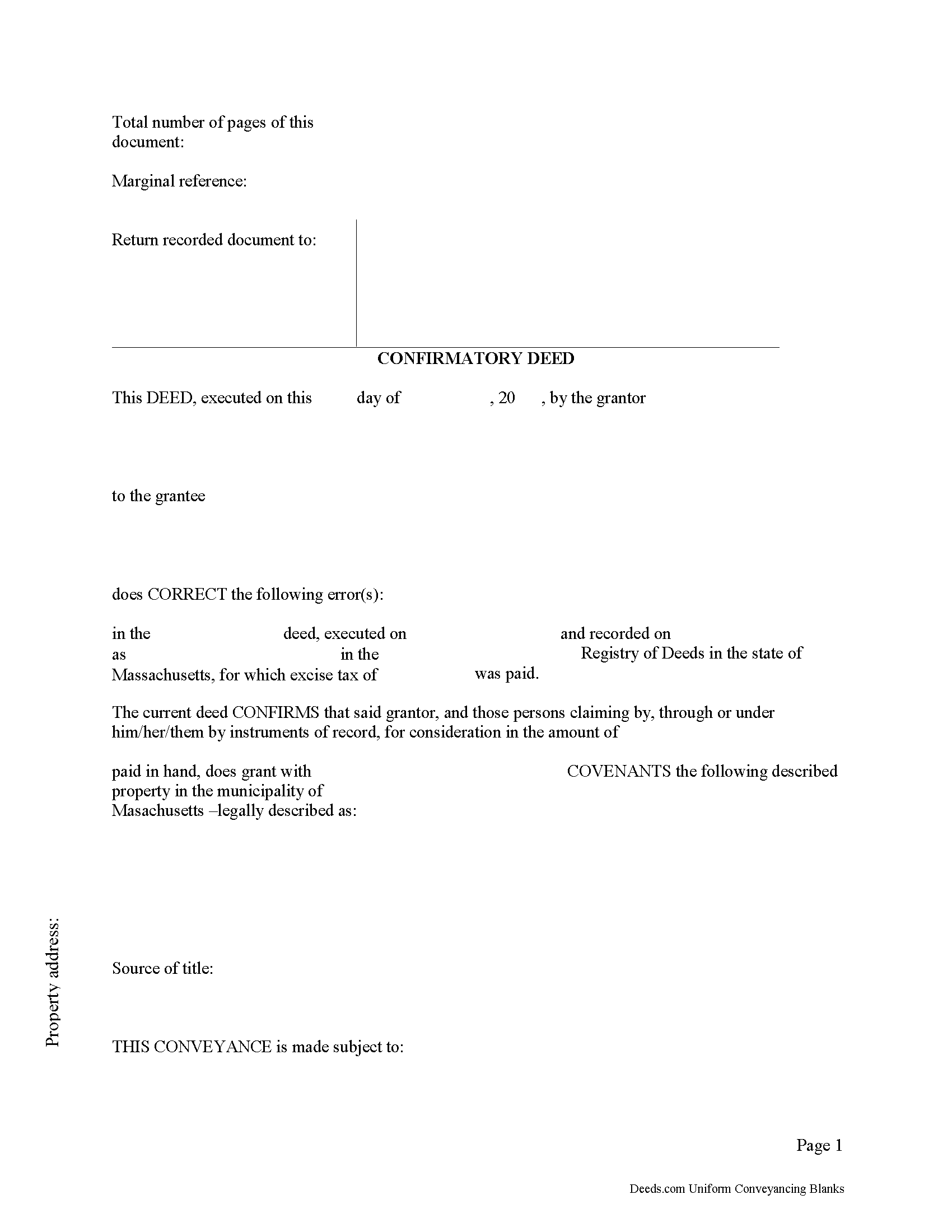Download Massachusetts Correction Deed Legal Forms

Massachusetts Correction Deed Overview

Use the confirmatory deed to correct an error in a warranty or quitclaim deed in Massachusetts.
A corrective or confirmatory deed is in effect an explanation and correction of an error in a prior instrument and passes no title. It should be executed from the original grantor to the original grantee, and it needs to be recorded, which in Massachusetts constitutes delivery of the deed. The date of the conveyance will remain unchanged, and the correction has retroactive effect, that is, it is valid as of the date of the original instrument even though it has a different execution date.
The confirmatory deed must reference the original conveyance it is correcting by type of error, date of execution and recording, and recording number and location. Beyond that, it restates the information given in the prior deed, thus reiterating and confirming it. No additional excise tax is required for such a deed, but the tax paid on the prior conveyance should be indicated.
Deeds of confirmation are most appropriate for minor errors and omissions in the original deed, such as misspelled names, omission of marital status, or typos in the legal description. More substantial changes, such as adding a name to the title, changing the vesting information or the legal description of the property, require a new deed of conveyance instead of a confirmatory deed.
(Massachusetts CD Package includes form, guidelines, and completed example)